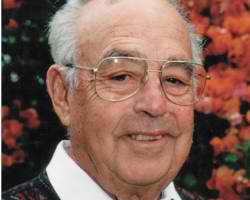Though it visits frequently, Richard Peña’s memory is strongest with me on two days of the year—Dec. 7 and Sept. 11.
Peña, a longtime columnist for The Star-News, was a World War II veteran and a Pearl Harbor survivor. He died in 2014.
Some times, during his weekly visit to the office, he wore a cap I think was emblazoned with USS Detroit, the ship on which he served, on the panel. My memory is hazy and time may embellish.

But I do recall once he remarked, in passing and casually, that it seemed people forgot about Pearl Harbor Day.
With each passing day and every subsequent year the gravity of that December morning—when Japanese fighter planes dropped bombs on a naval base in Hawaii and heralded the United States’ entry into World War II—seemed to be lost.
Sheepishly I admitted I rarely thought about that day. Born in the 60s I came along long after that moment was decades old and just a paragraph in history text books.
It was to be expected, he supposed. People grew older, life carried on, memories faded and, ultimately, members of his generation died.
But he’d never forget. Of course not. That historic moment changed him and his contemporaries and became a part of their common psyche. They’d never forget.
Decades later those words became almost a mantra for this country after it was attacked on Sept. 11, 2001 by religious extremists: Never Forget.
Twenty years later we are almost a generation removed from 9/11. The events of that day are taught as almost abstract episodes in this country’s history on digital notebooks in schools by teachers who were probably young children when the planes crashed into the World Trade Center.
The event that preceded the War on Terror is a vivid memory to many of us. But with each passing day and every subsequent year it naturally becomes less compelling to the people who will be around long after 9/11 has lost its immediacy.
Still, I hope the memory of those who died can somehow carry on, even if it becomes faded and mostly forgotten.

